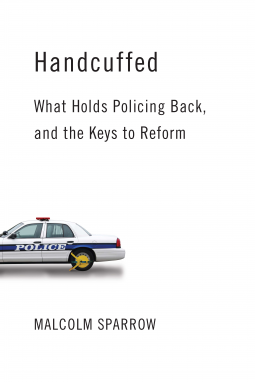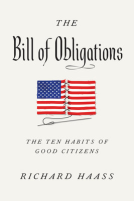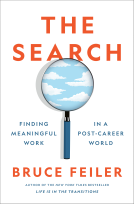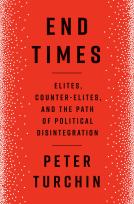
Handcuffed
What Holds Policing Back, and the Keys to Reform
by Malcolm K. Sparrow
This title was previously available on NetGalley and is now archived.
Send NetGalley books directly to your Kindle or Kindle app
1
To read on a Kindle or Kindle app, please add kindle@netgalley.com as an approved email address to receive files in your Amazon account. Click here for step-by-step instructions.
2
Also find your Kindle email address within your Amazon account, and enter it here.
Pub Date Apr 26 2016 | Archive Date Jul 31 2016
The Brookings Institution Press | Brookings Institution Press
Description
The current crisis in policing can be traced to failures of reform.
“Sparrow surely is right to condemn policing directed only at crime rates rather than community satisfaction.”
–The New York Times Book Review
In the past two years, America has witnessed incendiary milestones in the poor relations between police and the African-American community: Ferguson, Baltimore, and more recently Baton Rouge, St. Paul, and Dallas.
Malcolm Sparrow, who teaches at Harvard Kennedy School of Government and is a former British police detective, argues that other factors in the development of police theory and practice over the last twenty-five years have also played a major role in contributing to these tragedies and to a great many other cases involving excessive police force and community alienation.
Sparrow shows how the core ideas of community and problem-solving policing have failed to thrive. In many police departments these foundational ideas have been reduced to mere rhetoric. The result is heavy reliance on narrow quantitative metrics, where police define how well they are doing by tallying up traffic stops, or arrests made for petty crimes.
Sparrow's analysis shows what it will take for police departments to escape their narrow focus and perverse metrics and turn back to making public safety and public cooperation their primary goals. Police, according to Sparrow, are in the risk-control business and need to grasp the fundamental nature of that challenge and develop a much more sophisticated understanding of its implications for mission, methods, measurement, partnerships, and analysis.
Available Editions
| EDITION | Other Format |
| ISBN | 9780815727811 |
| PRICE | $25.00 (USD) |
Featured Reviews
 Linda S, Librarian
Linda S, Librarian
Handcuffed by Malcolm Sparrow addresses a high interest topic as the news is obviously filled with stories about Freddie Gray, Sandra Bland, Michael Brown and many others. Given a choice for research, our students have recently been requesting to explore topics like racial profiling, police actions and use of body cameras. The Brookings Institution's Handcuffed attempts to offer a well-credentialed and somewhat more balanced and academic view on this subject as compared to that offered by the sensationalizing media. To a large extent, Handcuffed succeeds – after all, it is based on a collaboration between the National Institute of Justice and the Program on Criminal Justice Policy and Management at the Harvard Kennedy School. Sparrow describes what he calls "the very best and very worst of police conduct," noting the generally universal praise for law enforcement involved with the search and capture of the Boston Marathon bomber in 2013 in addition to the cases mentioned above.
However, the book also has a weakness in that it is somewhat dated relative to this "in the headlines" topic. The selections are based on papers written (some in 2012) over the last few years and it was not possible, for example, to update references to current situations like the decision about indictments in the Tamir Rice case. Also, Sparrow references the database on police shootings that was compiled by The Washington Post staff, but was apparently too early to note that they won the Pulitzer Prize for their coverage. He does a strong job of summarizing the issues, noting the quest for answers to what he calls "some very basic questions:
Do police regularly abuse their powers and use excessive force?
How widespread is such abuse?
How much is it targeted on minority and poor communities?
Why can police not be held accountable?"
Sparrow also includes a section on reform, talking, for example, about topics like the benefits and risks of moving from a public force to a private security apparatus. Overall, Handcuffed is a valiant attempt to discuss the "18,000 law enforcement agencies that operate in America," but in striving to incorporate impartial, published papers, Handcuffed falls a bit short in terms of timeliness, even though it does include an extensive set of notes and useful index for our student researchers.
Link included to Washington Post coverage: http://www.pulitzer.org/winners/washington-post-staff
"If a police organization applies relentless pressure on its officers to maximize revenues (as in Ferguson), or to lower the recorded crime rate (as in the NYPD), but no counterbalancing controls are imposed on methods, the use of force, fairness in targeting, or integrity in reporting, from the public's perspective the resulting organizational behaviors can be ineffective, inappropriate, and potentially disastrous."
Malcolm Sparrow is a former British police detective who now teaches at Harvard's Kennedy Business School. His forthcoming book, Handcuffed: What Holds Policing Back, and the Keys to Reform, is one of the results of a collaboration of leading police chiefs and academics who met twice a year between 2008 and 2014 to debate theory and practice of policing.
More formally known as the Executive Session on Policing and Public Safety, the collaboration included members of the National Institute of Justice and the Program on Criminal Justice Policy and Management at the Harvard Kennedy School. Sparrow worked on the steering committee, which identified the critical themes to be addressed, managed the portfolio of papers commissioned, and acted as the editorial board for the 23 papers that were published.
Are you feeling anxiously over your head already? Good, as was I. Sparrow's book is heady stuff, really aimed, from my perspective, more towards police executives. It quotes and cites to countless studies and papers, talks in heavy police and executive jargon, and is, in many respects, quite complicated. But we are living in the age of a policing crisis. These complicated issues are important ones, and even I, no police executive or academic, was able to glean pertinent and interesting information from my reading, even if some of it banged around the room a bit before I got it.
In short, many of our police departments are failing to implement and/or follow the foundational working models of community and problem-oriented policing that came about roughly 35 years ago. Instead, many departments, as a result of various pressures, have reduced their measure of success to a very narrow front.
In Ferguson, for example, studies performed following the Michael Brown tragedy showed the department's "practices are shaped by the City's focus on revenue rather than by public safety needs." The emphasis on revenue and the constant pressure on police executives to generate revenue through enforcement trickled down through the ranks and was one of the factors that lead to procedural and due process concerns and resulted in unnecessary harm to the community.
[A] powerful and singular focus on maximizing revenue was accompanied by loose controls on means: FPD has communicated to officers not only that they must focus on bringing in revenue, but that the department has little concern with how officers do this.
The Department of Justice report following its investigation into the Ferguson Police Department is a recommendation of reform by a refocus on the foundational ideas of community policing. Sparrow takes a look at various ways departments, like Ferguson and the NYPD, get off track and how we can implement change.
Interestingly, even those departments, such as the NYPD, who focus on reduction in crime rates aren't getting it right. When that narrow focus leads to tunnel vision without contemplating of other facets of policing and community needs, things go off the rails fairly easily.
Strange as it may sound, even though the NYPD and the Ferguson Police Departments had settled on quite different central imperatives, the fact that they each had a single central imperative, strongly emphasized and highly quantitative in nature, leads both departments into similarly dangerous waters. A dominant focus on one dimension of performance suppresses other legitimate concerns. A focus on ends, if not matched by effective controls on means, can lead to behaviors that are unwise, risky, or illegal.
In addition, a focus on reducing crime rates isn't even necessarily a proper focus in the first instance, since they are, in general, "very corruptible indicators." One of the most fascinating and telling experiences discussed by Sparrow was a "police simulator" scenario presented at the Executive Session. Given three scenarios, the leaders expressed their opinions on what might be happening.
Two of the three scenarios showed a reduction in the reported crime rate, traditionally thought to be one of the markers of success. But overall, those scenarios suggested various forms of overall failure despite that marker of "success." The third scenario was the only one that suggested an effective policing strategy, and it evidenced an INCREASE in reported crime rates and a DECREASE in conviction rates, generally markers of poor performance.
What the hell happened? The executives felt the third scenario might be early evidence of an energetic and successful campaign against domestic violence, which is exposing the problem more effectively (higher reported crime rates) and using arrests and prosecutions as effective deterrents. This is just one example of how and why focusing on one element of policing as a measure of success is a recipe for disaster, particularly where certain types of crimes (domestic violence, sexual assaults, crimes involving intimidation) are notoriously underreported.
[P]ressure to reduce the numbers is counterproductive when dealing with the whole class of invisible crimes (classically unreported or underreported crimes). Successful campaigns against these types of crime often involve deliberate attempts to expose the problem by first driving reporting rates up, not down.
Handcuffed goes into much more detail on many more levels, but the above provides just an inkling of the issues faced by those trying to straighten out the areas where our law enforcement practices are lacking. Certainly events of the recent past indicate we have much work to do. I hope those that should be reading this book read it and take note. I also hope lay people will read it to increase overall awareness of the hurdles we face. Let's also not forget the many men and women out there who ARE taking part in community-based policing and have standards in place that take into account more than just the bottom line.
STREET SENSE: Sparrow acknowledges that while the audience for this book includes policy professionals, his hope is that interest extends beyond that. He wrote the book for "anyone and everyone who is concerned about the quality of policing in a democracy." I hope that's all of us. While some of this book was beyond my scope, it was definitely a fascinating and worthwhile read.
A FAVORITE PASSAGE: Not a "favorite" in the sense that's it's beautiful, but more a recognition of the power of the statistics on fatal police shootings. First, a statistic: Australian police shot dead ninety-four people in a nineteen year period (1992-2011). According to the Guardian's tally, U.S. police shot dead ninety-seven people in just one month, March 2015.
"America is not an outlier...it is the outlier."
COVER NERD SAYS: I'm a sucker for neatness and clean lines and images, so this cover is right in my wheelhouse. I think it could have used a little bit more oomph in the font, but when you're covering what's really a scholarly paper on a serious topic, you don't want to do too much fooling around. This one is a win for me.
Readers who liked this book also liked:
Marie Bostwick
Historical Fiction, Literary Fiction, Women's Fiction
John Kotter; Holger Rathgeber
Business, Leadership, Finance, Nonfiction (Adult)
Rachel Joyce
Historical Fiction, Literary Fiction, Women's Fiction
James McBride
General Fiction (Adult), Historical Fiction, Literary Fiction


















